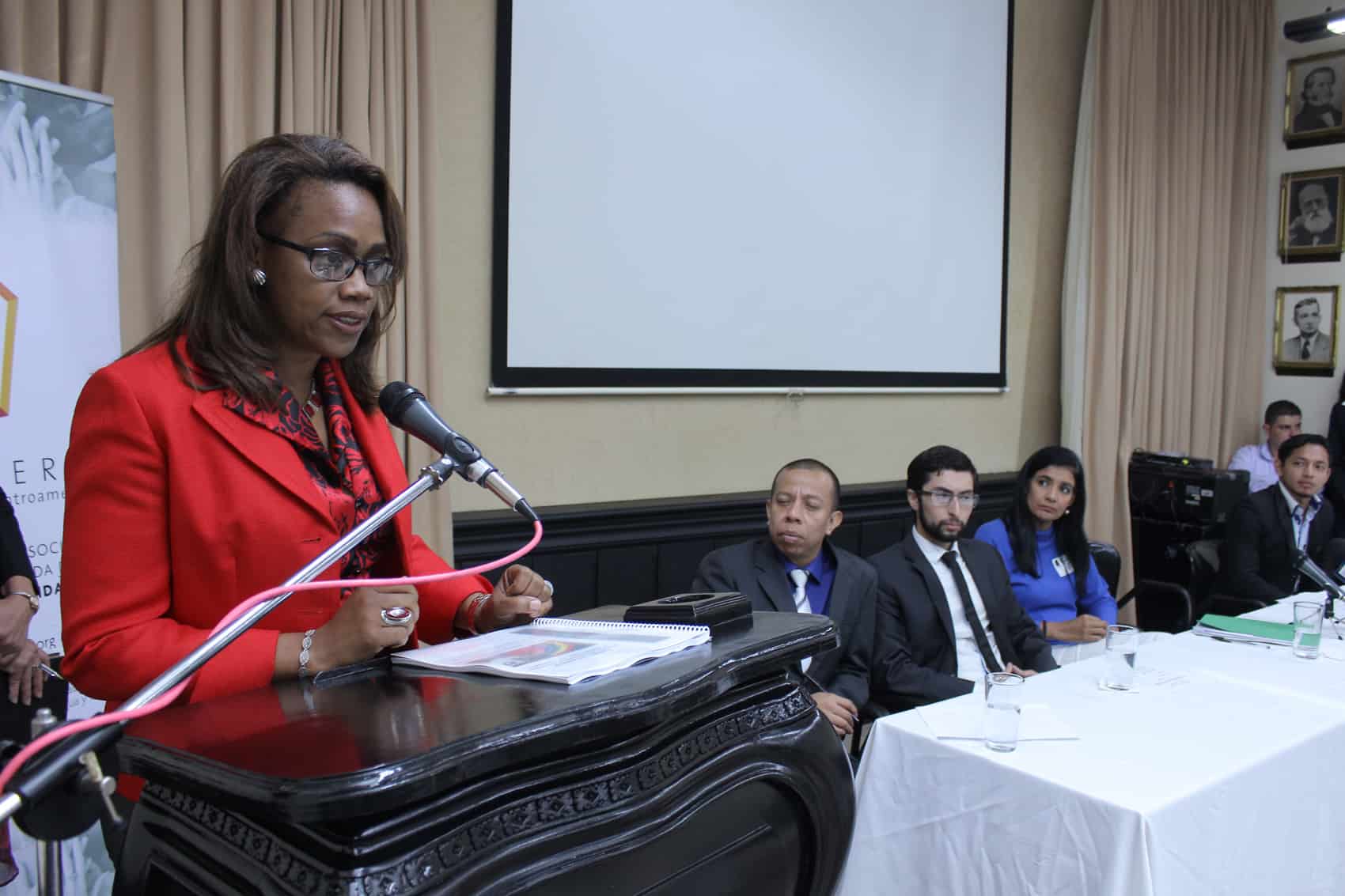Facing violence and criminal impunity in their countries of origin, lesbian, gay, bisexual and transgender people have become the latest face of Central American displacement, and they have turned to Costa Rica for refuge.
On Monday morning, activists presented lawmaker and legislative Human Rights Commission Secretary Epsy Campbell with a white paper chronicling the stories of LGBT victims of violence to raise awareness about Costa Rica’s policy of accepting hate-crime refugees.
Representatives from Honduras, Guatemala and El Salvador spoke about their experiences in their home countries, including Dennis Castillo, a Honduran refugee who has been living in Costa Rica for 26 months. After the killing of his friend from a local LGBT activist organization, CEPRES, more than two years ago in San Pedro Sula, Castillo and his friends demanded that police investigate the crime, which they insisted was gang-related. After attempts to motivate police fell on deaf ears, Castillo began to receive death threats that eventually drove him to Costa Rica. Nine months later, Castillo was granted one of the first LGBT refugee statuses ever in Costa Rica.
“It’s a kind of torture to have to give up your life’s work, your family, and migrate to another country,”Castillo told The Tico Times in a previous interview.
Ziolamérica Ortega, stepdaughter of Nicaraguan President Daniel Ortega and regional consultant for the human rights organization Casa Abierta, said that chronic violence faced by the LGBT community in Central America went beyond the everyday violence that has come to typify the Northern Triangle, which has some of the highest homicide rates in the world. The human rights activist accused Central American governments of being unable or unwilling to protect their LGBT citizens.
“Hate crimes are a kind of genocide against the exercise of a new political leadership. We come before this Assembly to add our voices to those across the region that declare the right to life and free association for LGBT groups in Central America,” Ortega said during the presentation Monday.
“We hope that the legislatures of Guatemala, Honduras and El Salvador dare to discuss laws that address their invisible sexually diverse populations,” she said, adding that Costa Rica could not be expected to care for all the possible victims of hate crimes in Central America.
Ortega told The Tico Times that there are at least four other cases of people soliciting asylum in Costa Rica due to hate crimes. Officials from the Public Security Ministry, one of the agencies that handles refugee applications, were not immediately available to confirm the number of applications.
Costa Rica has a long history of accepting refugees from the region during Central America’s decades of civil wars, and is currently the second largest destination of refugees in Latin America after Ecuador, according to United Nations High Commission for Refugees Protection Associate Efraín Guerrero.
Casa Abierta’s white paper claimed that five LGBT people are killed in hate crimes every month; 50 percent of LGBT people in Nicaragua reported being attacked at some time because of their sexual orientation.
In Honduras, there have been 176 cases of killings related to a person’s sexual orientation, according to the report. In El Salvador, some 148 transgender people have been killed and their cases were never investigated, said Sayuri Sosa, a Salvadoran transgender activist with COMCAVIS-Trans. In Guatemala, there were at least eight cases reported of transgender people killed. Sosa noted that police reports often underreport the actual number of transgender people killed because autopsies report only the biological sex of the victim, not their chosen gender identity.
Campbell said that she would present the report during a meeting of the legislature’s Human Rights Commission on Wednesday.
Costa Rica is a relatively tolerant country for the LGBT community, and it has recently extended several sought-after rights to same-sex couples, including health and insurance coverage for same-sex partners. One of President Luis Guillermo Solís’ first acts in office was to raise the rainbow LGBT flag at Casa Presidencial, likely a first for any Latin American leader. A May survey from the Center for Research and Promotion of Human Rights in Central America reported that 70 percent of respondents supported state recognition of same-sex relationships, but not same-sex marriage.






